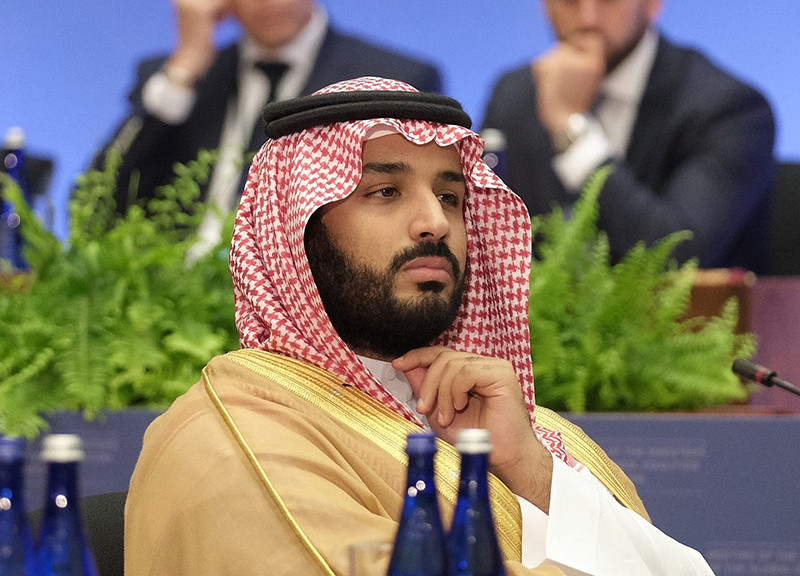
Crown prince also warns US that Riyadh will seek nuclear bomb if Iran secures atomic weapon
Felicia Schwartz in Washington - Financial Times
Crown Prince Mohammed bin Salman, Saudi Arabia’s de facto leader, has said Palestinians would be “very important” in any deal to normalise ties with Israel, as the two countries move closer to a historic agreement.
In his first interview with an American TV channel since 2019, Prince Mohammed said the US, Israel and Saudi Arabia were making progress on talks towards normalising relations, but indicated the future of Palestine remained a sticking point.
“For us, the Palestinian issue is very important. We need to solve that part,” he said in an excerpt from an interview with Fox News’ Special Report released on Wednesday. “We hope that will reach a place, that it will ease the life of the Palestinians, get Israel as a player in the Middle East.”
The crown prince, a son of the Saudi king but the country’s day-to-day ruler, dismissed reports that Riyadh had pulled out of the discussions.
“Everyday we get closer,” he said.
Prince Mohammed’s comments come after months of negotiations led by the White House, which is pursuing a long-shot push to bring tacit relations between Israel and Saudi Arabia into the open, ending decades of tension that have bedevilled Middle Eastern politics and vexed successive US presidents.
As part of the deal, Washington and Riyadh would forge some sort of defence pact, Washington would offer the kingdom civil nuclear co-operation and Israel would make some kind of concessions to the Palestinians in their quest for statehood.
Asked about a potential defence pact with the US, Prince Mohammed said it would “save effort and headache from the Saudi side” to not shift its defence spending to other arms suppliers.
“We have a lot of security, military ties that really is strengthening the position of Saudi Arabia, the Middle East and strengthening the position of America globally, especially in Middle East. You don’t want that to be shifted.”
Prince Mohammed had another warning for the US, which is also seeking to contain the nuclear ambitions of Saudi Arabia’s regional rival Iran, reiterating that Riyadh would secure its own warhead if Tehran acquired an atomic weapon of its own.
“If they get one, we have to get one,” the crown prince said.
Prince Mohammed’s assertion may prove contentious in the US Congress, which will have to approve the nuclear co-operation portion of any agreement between Washington and Riyadh.
The crown prince also dismissed claims that the kingdom was helping Russia’s war effort in Ukraine by slashing crude supply to boost prices, which have risen to almost $100 a barrel in recent days, triggering alarm in consumer countries.
Last year, the White House said Saudi Arabia and other Opec+ producer countries were “aligning” with Russia in its full-scale invasion of Ukraine, just as western countries imposed sanctions in a bid to deny President Vladimir Putin oil revenue for his war chest
“It’s purely about demand and supply,” Prince Mohammed said about decisions to cut production. He also noted that Saudi Arabia had voted in the UN to condemn Russia’s invasion last year.
Talks between Israel, the US and Saudi Arabia picked up pace over the summer, and President Joe Biden met Benjamin Netanyahu, Israel’s prime minister, on the sidelines of the United Nations meeting in New York on Wednesday to discuss the effort.
Yet despite the flurry of diplomatic activity and positive comments emanating from the parties, the project has long odds.
Saudi security and nuclear demands will be difficult for the US to negotiate and require a greenlight from a sceptical Congress. Israel could be unwilling to give the concessions to Palestinians that Riyadh may seek.
Alongside the normalisation effort, the US has also sought to breathe new life into diplomacy with Iran on its nuclear programme. Earlier this week Washington and Tehran swapped prisoners as a confidence-building measure that diplomats hope could lead to eventual talks on Iran’s nuclear activities and other issues.














